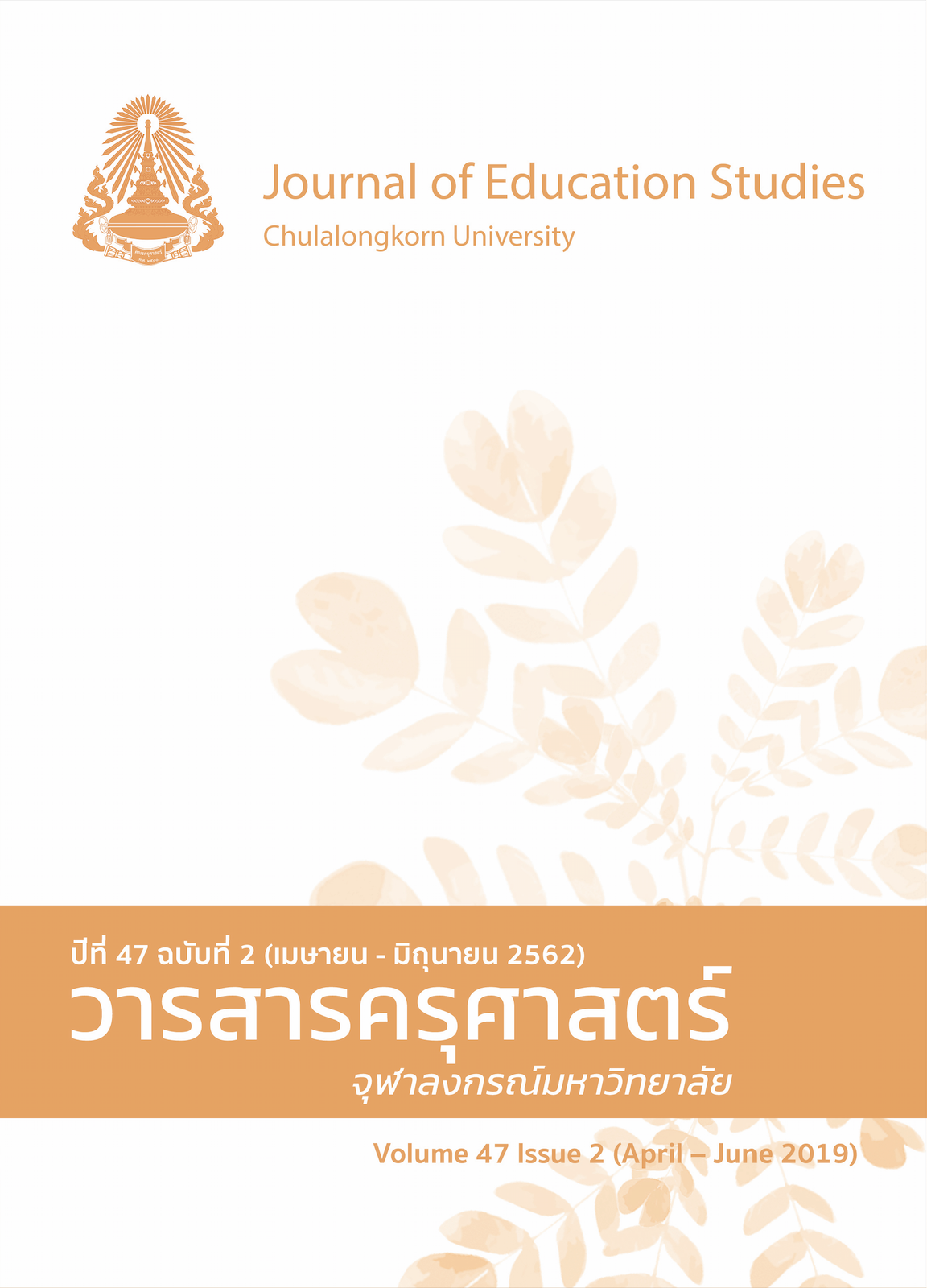การพัฒนารูปแบบการเรียนการสอนตามแนวการสอนประสบการณ์การอ่านแบบเสริมต่อการเรียนรู้ และการเรียนรู้แบบกำกับตนเองเพื่อส่งเสริมการรู้เรื่องการอ่านของนักเรียนระดับชั้นมัธยมศึกษาตอนต้น
Keywords:
READING LITERACY, INSTRUCTIONAL MODEL, SCAFFOLDED READING EXPERIENCES APPROACH, SELF - REGULATED LEARNINGAbstract
The main purposes of this study were to 1)develop aninstructional model based on the scaffolded reading experiences approach and self-regulated learning for enhancing students’reading literacy inlower secondary school and 2) evaluate the effectivenessof the instructional model based on the scaffolded reading experiences approach and self-regulated learning after the experiment. The sample consisted of 70 ninth grade of Santiratwitthayalai School in Bangkok, with 38 students in the experimental group and another 32 in the control group. The experiment took lasted eight weeks, two hoursper week, totaling 16 hours. The research instruments consisted of a test of reading comprehension and implementation and a reading engagement assessment tool. Data were analyzed by arithmetic mean, standard deviation, t-test, and content analysis.
The findings were as follows: 1) The developed instructional model was based on four main principles including (1) surveying reading experiences, (2) setting reading objectives and planning reading, (3) applying reading and learning strategies and (4) assessing reading and learning strategies. The instructional process consisted of four steps; (1) surveying reading experiences, (2) planning to enhance reading experiences, (3) scaffoldingreading experiences and (4) assessing reading experiences. 2) Effectivenessof the instructional model (2.1) The reading literacy of students in the experimental group after learning through the instructional model was significantly higher than the control group at a .05 level of significance. (2.2) The reading literacy of students in the experimental group was higher after theexperiment than that of beforeat a .05 level of significance.




